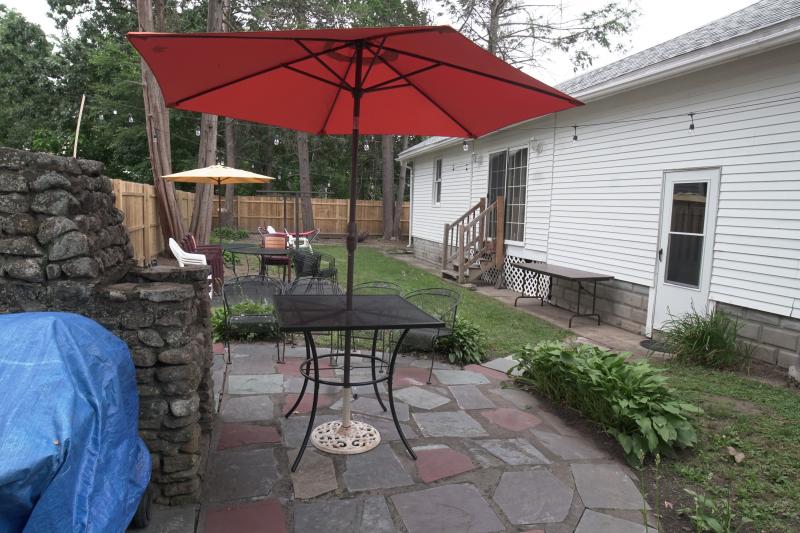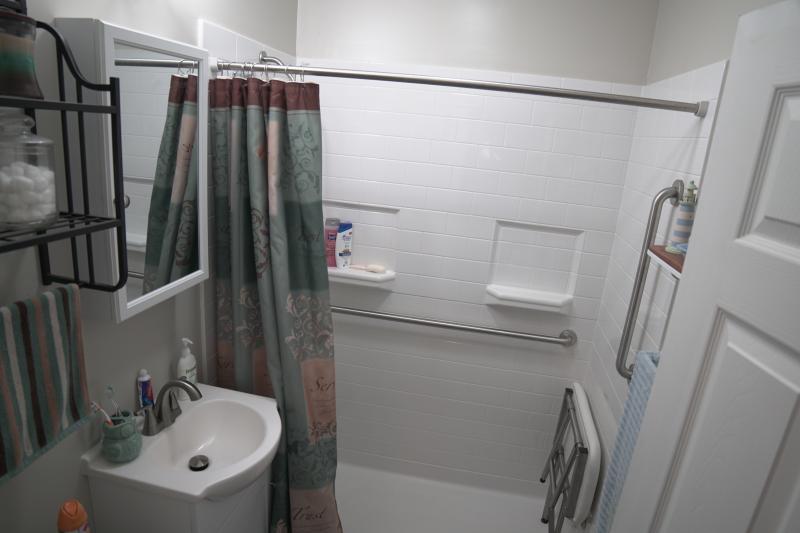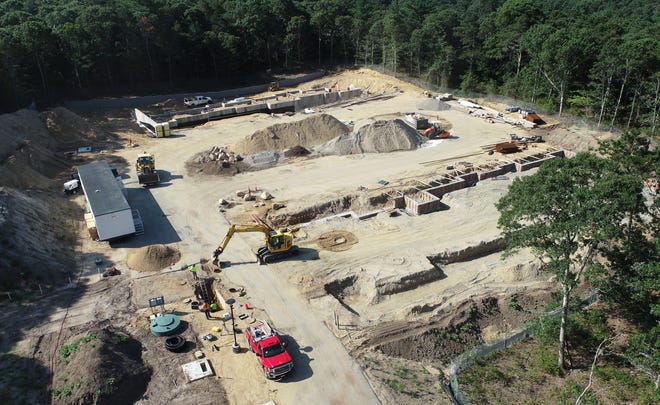
By late September 2017, Roberto Camacho breathed a sigh of relief. Earlier that month, he had successfully helped his elderly parents relocate from their hometown of Yauco, Puerto Rico, to the one-bedroom home he was renting in Springfield, Massachusetts. Roberto had made this same move on his own several years prior, to take a job with the Gándara Center.
Less than two weeks after they arrived, Hurricane Maria devastated the island. Roberto believes the move saved his parents’ lives. Help was especially slow to reach Yauco. And his parents, Tony and Magda, lived alone and have chronic health challenges.
It was a phone call from Tony that spun their relocation into motion. “My father told me he didn’t want to drive anymore,” Roberto recalls. “After grocery shopping with my mother, he had a blackout and didn’t know where he was. They were lost for three hours, driving in his hometown.”
His father, who has type two diabetes and age-related memory loss, had been caring for Magda, who has depression and dementia.
“Something in my heart said, well, I have no choice,” Roberto says, of his decision to become his parents’ caregiver—a choice that meant resigning his job as a care manager for Commonwealth Care Alliance. “My parents left everything, they just came with a couple of bundles. And two dogs.”
The trio moved again in November 2017, when Roberto purchased a larger home in Springfield in what they believed to be a quiet neighborhood. Unfortunately, it wasn’t.
“The fire trucks took our street as a shortcut,” Roberto says. “They passed by three, four, five times a day with sirens very high. My mother got very anxious every time she heard the sirens. So I was forced to sell.”
 Roberto feels lucky that he was able to buy a home in the summer of 2020, in the middle of the Covid-19 pandemic, in a truly quiet spot. But the 1931 one-floor, one-bathroom home in Springfield had a drawback that soon became a worrisome safety issue: an old antique tub with high sides.
Roberto feels lucky that he was able to buy a home in the summer of 2020, in the middle of the Covid-19 pandemic, in a truly quiet spot. But the 1931 one-floor, one-bathroom home in Springfield had a drawback that soon became a worrisome safety issue: an old antique tub with high sides.
“My parents were having difficulty getting in and out of the tub, my father was close to falling several times,” says Roberto. “I realized I needed to get rid of that tub, but I was broke!”
With his experience as a care manager, Roberto was familiar with local resources in the community. He began looking for a program that would cover the costs—nearly $25,000—to make the bathroom accessible.
“And I couldn’t find those free services! They don’t exist anymore. I was happy to find a different resource opportunity with Way Finders,” Roberto says, of the Home Modification Loan Program (HMLP).
Roberto had connected with Way Finders Homeownership Advisor Amneris Moreno Pagan, who explained how the HMLP works: Funded by the state, the program aims to help seniors and individuals with disabilities to live more independently and comfortably at home. It provides financing—a 0% interest, deferred payment loan up to $50,000—to homeowners or landlords so they can adapt or modify a home for increased safety and accessibility, such as in the kitchen or bathroom.
General home repairs are not eligible; the modification needs to directly relate to a person’s ability to function on a day-to-day basis, as documented by a professional.
Those who receive funding are not required to make monthly payments. Payment of the HMLP loan is required only when the property is sold or the property title is transferred to someone else or to a Trust (or if any condition of the loan agreement is not met).
“I analyzed the situation, and it was perfect for me,” Roberto says. “I said, ‘Well, let’s do it.’”
 A few months after deciding to go for it, Roberto secured the loan and lined up a contractor. Then within three weeks, the contractors replaced the tub with an open shower and closed off a low window. They also installed grab bars, a higher toilet, and a handheld showerhead. And for greater ease of access, the narrow doorways to the bathroom and his parents’ bedroom were both enlarged.
A few months after deciding to go for it, Roberto secured the loan and lined up a contractor. Then within three weeks, the contractors replaced the tub with an open shower and closed off a low window. They also installed grab bars, a higher toilet, and a handheld showerhead. And for greater ease of access, the narrow doorways to the bathroom and his parents’ bedroom were both enlarged.
“Thanks to Way Finders, my parents can enjoy a fully accessible bathroom,” says Roberto. “They feel more secure and confident. The safer environment provides them and me with peace of mind. God bless you!”
“I am happy,” says Tony, of the impact the changes brought to his daily life.
Roberto praises Amneris for her help. “She was very efficient and guided me through the whole process with a high level of professionalism. Every time I needed to speak to her, she answered. She replied to my emails and texts within minutes.”
Roberto is eager to return to the workforce but, until then, is glad to be able to care for his parents in the comfort of his home—with less worries for their safety.






